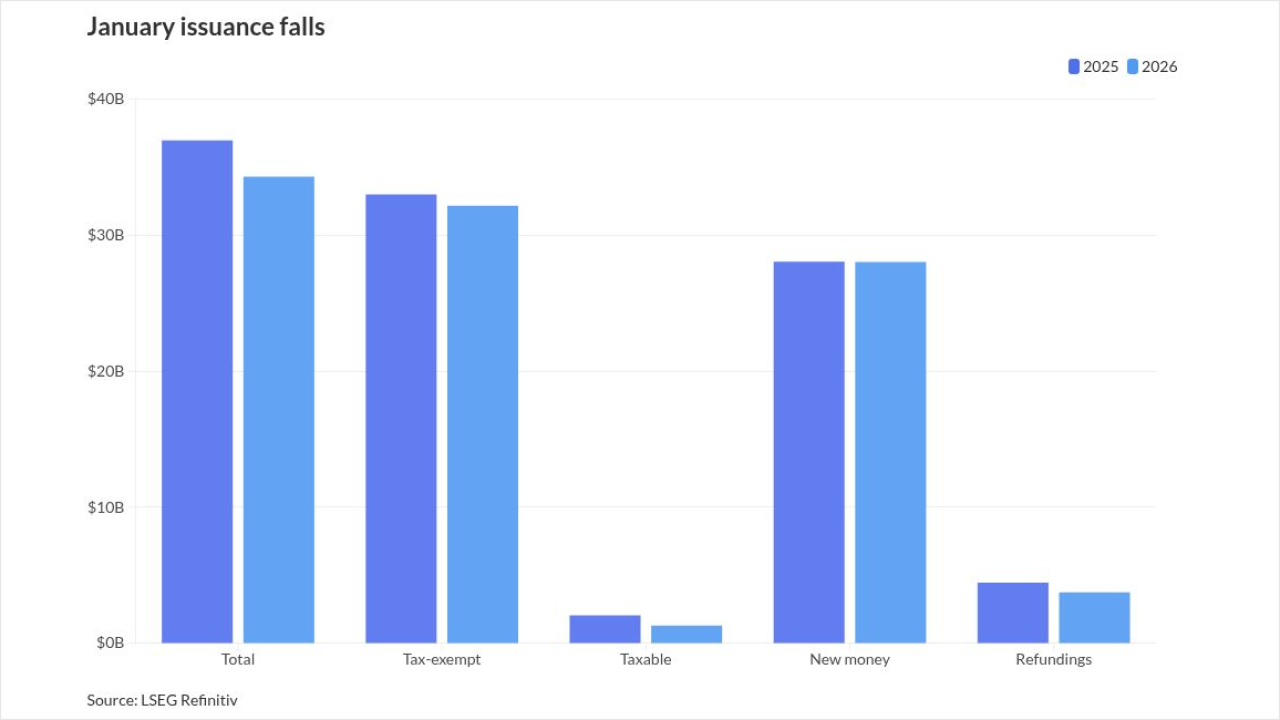Soaring April tax collections have positioned New Jersey for its first rainy day fund deposit in more than a decade.
State Treasurer Elizabeth Maher Muoio said Tuesday that Gov. Phil Murphy’s administration will deposit $317 million in the state’s rainy day fund for the current 2019 fiscal year thanks to a record-setting $3.627 billion of gross income tax receipts collected April. The rainy day fund has sat dry since late 2008 just after the Great Recession hit.

“Our surplus and rainy day fund are crucial to sustaining us in the event of an economic downturn, which most economists view as inevitable, sooner than later,” Muoio said in testimony Tuesday morning before the Senate Budget and Appropriations Committee. "It is absolutely crucial that these funds remain in a 'lockbox.' We have to prepare for forces both inside and outside of our control."
Muoio noted that New Jersey had $734.7 million in the rainy day fund during the 2008 fiscal year shortly before the entire balance was drawn when the economy collapsed. New Jersey state statute requires that 50% of any general fund revenues that are in excess of the amount certified by the governor get deposited into the rainy day fund. The state’s rainy day fund, which was created in 1990, is primarily supported by the gross income tax.
New Jersey’s final April gross income tax payments soared by 57% compared to a year ago, which Muoio attributed to changing taxpayer behavior from federal tax changes that capped deductions on state and local taxes at $10,000. She said the SALT cap took away an incentive to prepay state income taxes in December for federal tax planning purposes and resulted in more April filers. The previous April record for gross income taxes was $3.14 billion in 2008.
The April surge means the Murphy administration is now projecting a 5.8% growth in gross income tax revenues for the 2019 fiscal year that ends June 30 compared to 2018 and $349 million above prior forecasts. The state’s current fiscal year forecast for total revenues was revised upward by another $377 million for a total of $38.115 billion, according to Muoio. The treasury department is also now forecasting back-to-back surplus balances of over a billion dollars for 2019 and 2020.
"While our proposed surplus is roughly double the average of the previous administration, it represents only 3% of our total budget," Muoio said. "We still have a long way to go to get to the recommended average of 10% of our total budget."
S&P Global Ratings credit analyst David Hitchcock noted in a May 7 report that New Jersey finished the 2018 fiscal year with a “small, but better-than-budgeted $990 million operating fund balance, which equated to 2.8% of appropriations. Gov. Murphy’s
Murphy used the state’s revenue boost last week
Structurally unbalanced budgets and underfunded pensions resulted in 11 bond rating downgrades for New Jersey under previous Gov. Chris Christie between 2011 and 2017. The Garden State’s general obligation debt is rated A-minus by S&P Global Ratings, A3 by Moody’s Investors Service and A by Fitch Ratings and Kroll Bond Rating Agency.





